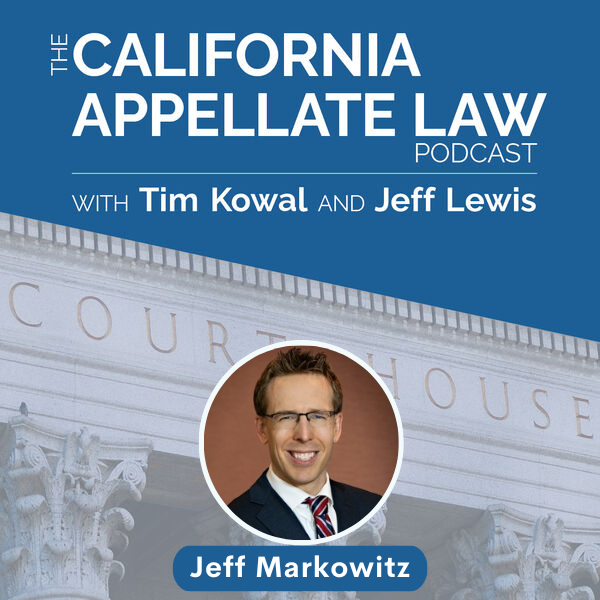
You have just about 15-30 seconds at oral argument before the panel is likely to interrupt you. How will you use that time? Minnesota appellate attorney Jeff Markowitz says you should be unlocking that key point that allows the rest of your case to unfold. If you haven’t discovered that point by the time of oral argument and distilled it to an elevator pitch, you’re likely squandering your opportunity.
Jeff also explains why you’re likely squandering prime real estate in your brief by roadmapping your arguments. Your headings should be doing that already. Instead, use the introduction to develop your case theme.
Then we compare Minnesota and California appellate procedure:
Unlike in CA, in MN the Supreme Court sets the rules of civil procedure.
Unlike in CA, MN courts always have a court reporter available.
Unlike in CA, MN doesn’t have a “we don’t talk about Bruno” approach to unpublished opinions. They’re not binding, but you can cite them.
Unlike in CA, MN gives a 30-day initial stay of judgment enforcement.
Jeff Markowitz’s biography, and LinkedIn profile.
Appellate Specialist Jeff Lewis' biography, LinkedIn profile, and Twitter feed.
Appellate Specialist Tim Kowal's biography, LinkedIn profile, Twitter feed, and YouTube page.
Sign up for Not To Be Published, Tim Kowal’s weekly legal update, or view his blog of recent cases.
Use this link to get a 25% lifetime discount on Casetext.